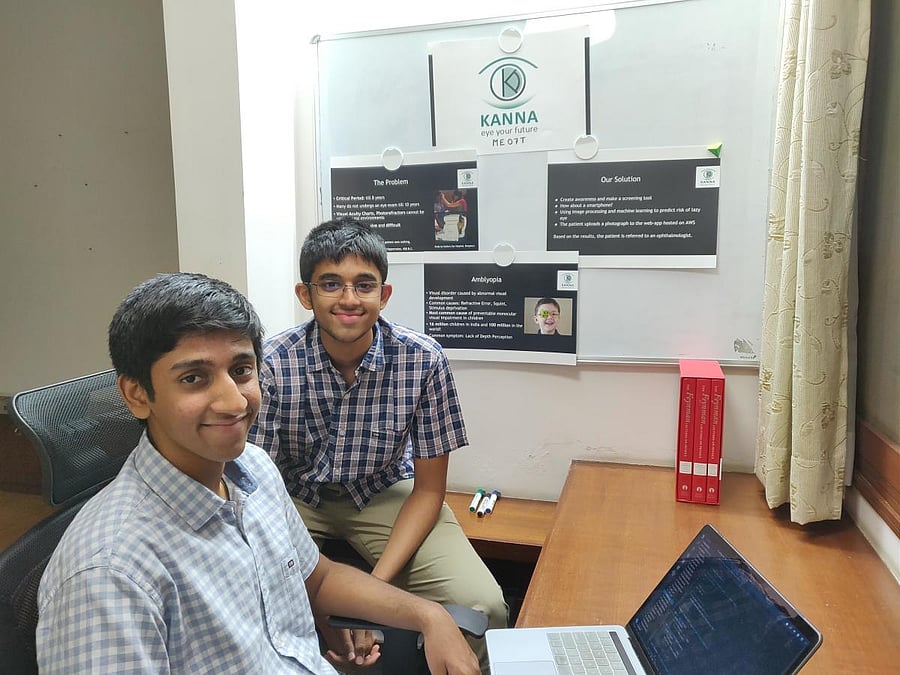
An app developed by two teenaged brothers to detect a defect in the eye has won the Grand Prize at the IRIS National Fair, India’s largest research-based science fair for students.
Vrishab Krishna and Vishwesh Krishna, both students of National Public School, Indiranagar, will now represent India at the Intel International Science and Engineering Fair.
Their app, Kanna, is a result of the brothers’ mission to ensure that a defect in children’s eyes does not go undetected. The teens claim to have come up with the solution after Vrishab had Amblyopia as a young boy.
When Vrishab was four and his brother Vishwesh two years older set out to play, the elder sibling would catch a ball that was thrown at him with ease. However, Vrishab, unlike most children of his age, would be left perplexed. When children his age could just run down the stairs, Vrishab would watch every step and take longer.
Multiple visits to ophthalmologists yielded no results. His mother Gayathri Krishna was told that he had long sight and that it would be fine as he grew older. She refused to buy the explanations of the doctors.
“I noticed that in a few photographs, he was cross-eyed. When Vrishab was in second year Montessori, he was exceptionally nervous when he was asked to write,” she recalled.
She took him to a Bengaluru-based paediatric ophthalmologist who diagnosed Vrishab with Amblyopia.
This is a condition where one eye functions better than the other. In other terms, one of them is a lazy eye. “One optic nerve is dominant over the other. The brain takes one set of signals. Over time, the other tends to become blind,” she said.
Simply applying a patch on the lazy eye and having the other eye to do the functioning is a solution. However, early detection is the key.
Kanna, the app developed by the boys ensures early detection, claim the teenagers. Users can just upload a passport-size picture on the app, which will soon be available online. With image processing and machine learning techniques, the app can identify the potential risk factors and hence, possible cases with just a picture from the smartphone. The boys are running a validation with data from 600 cases from Shankara Eye Hospital.
“We hope to take it to rural eye camps where we can identify other kids early. Children ought to be detected before the age of eight, failing which it could result in blindness. Conventional methods are time-consuming and we can pick those with risk factors better,” said Vrishabh.
